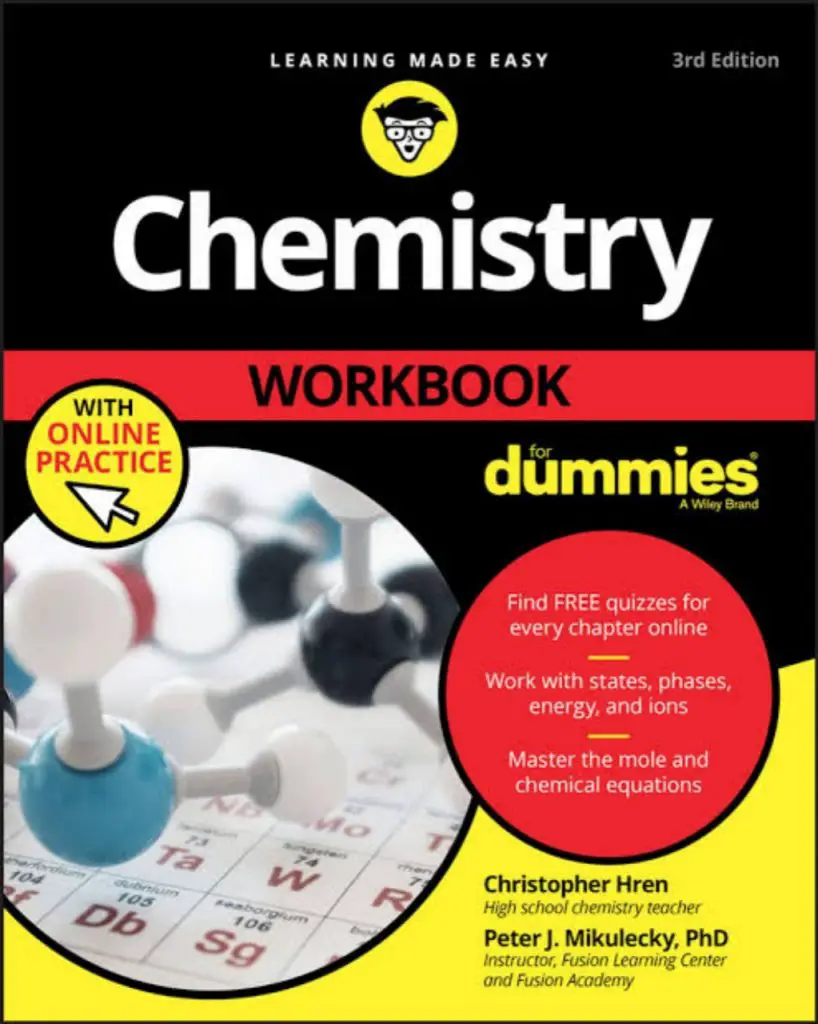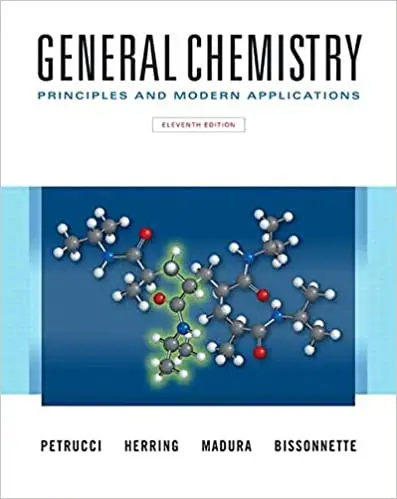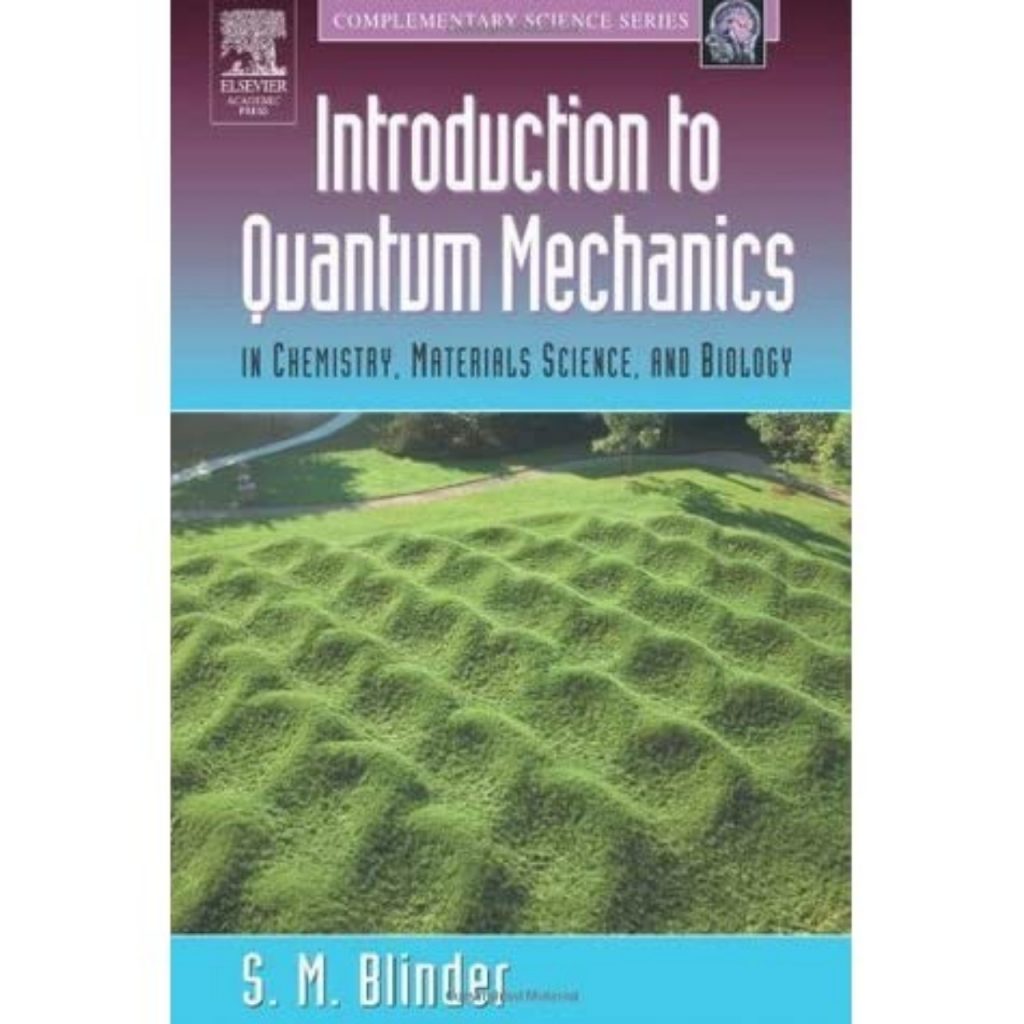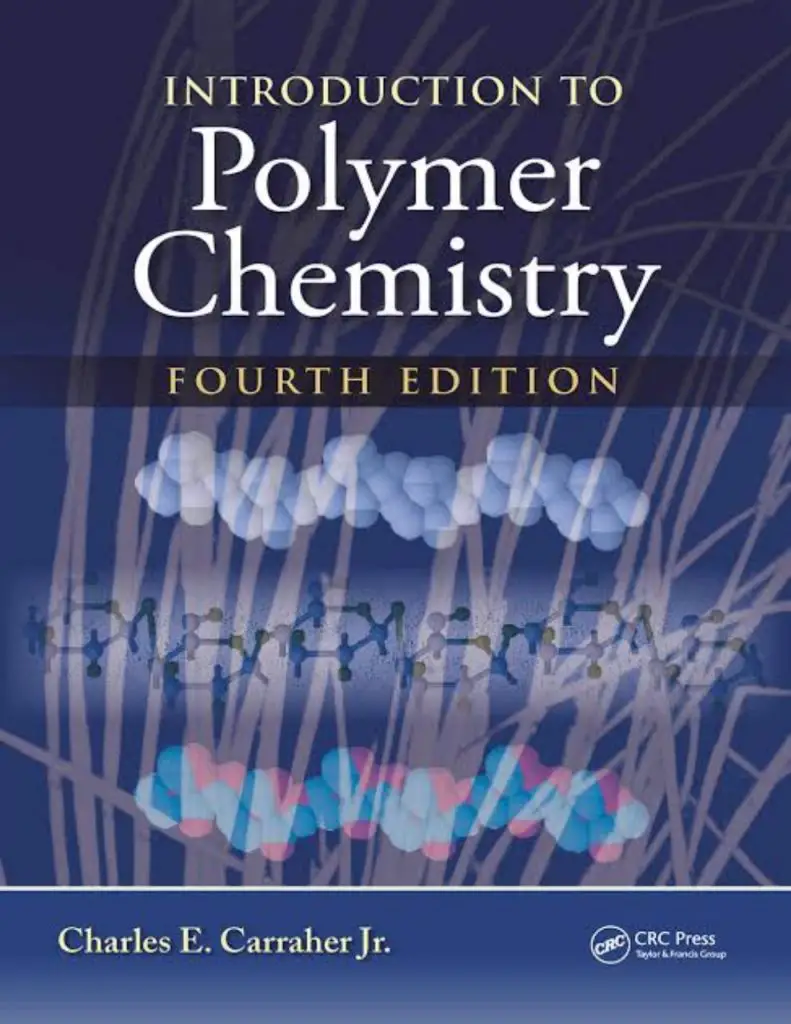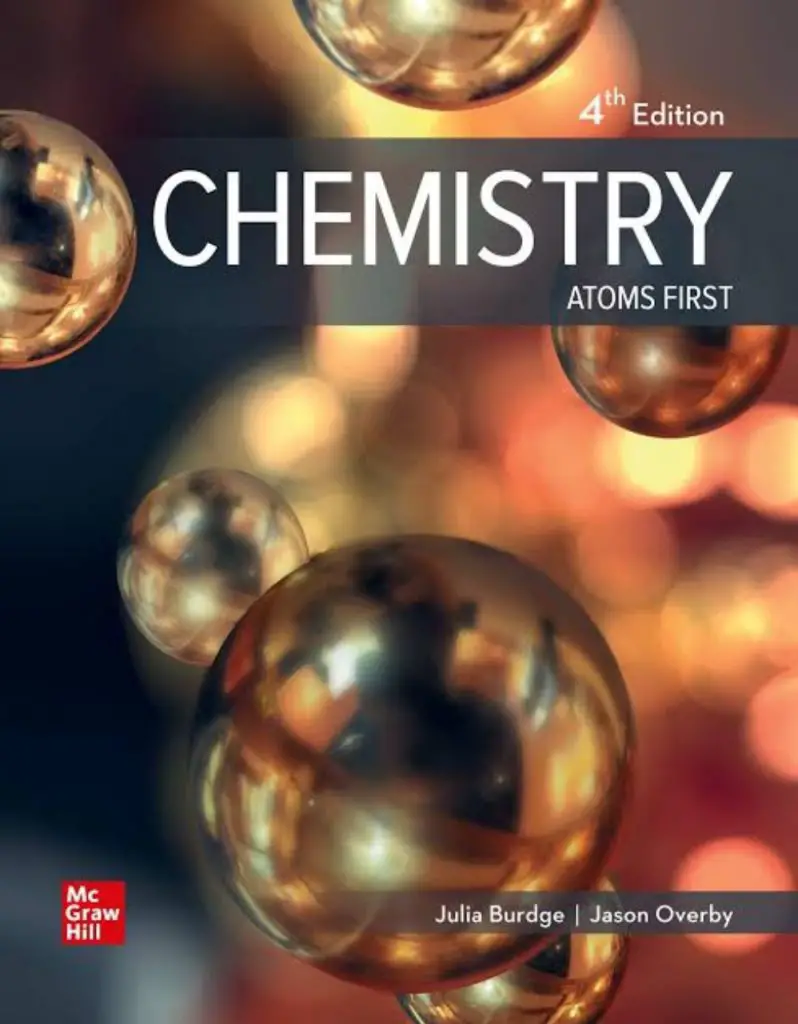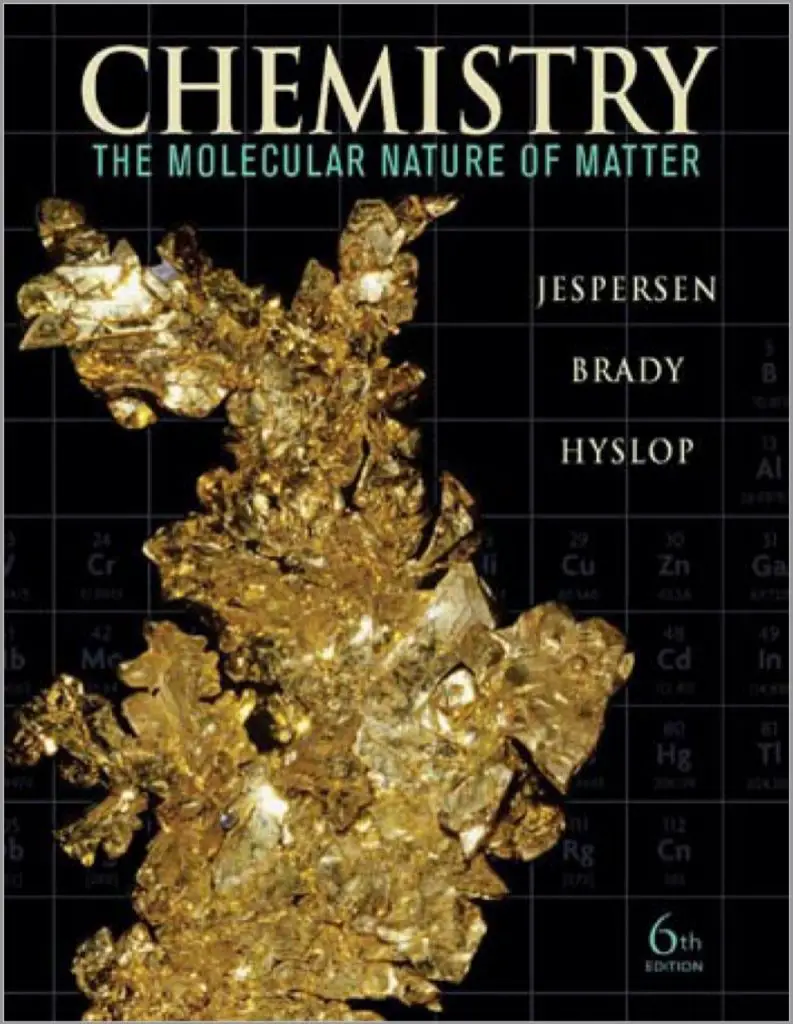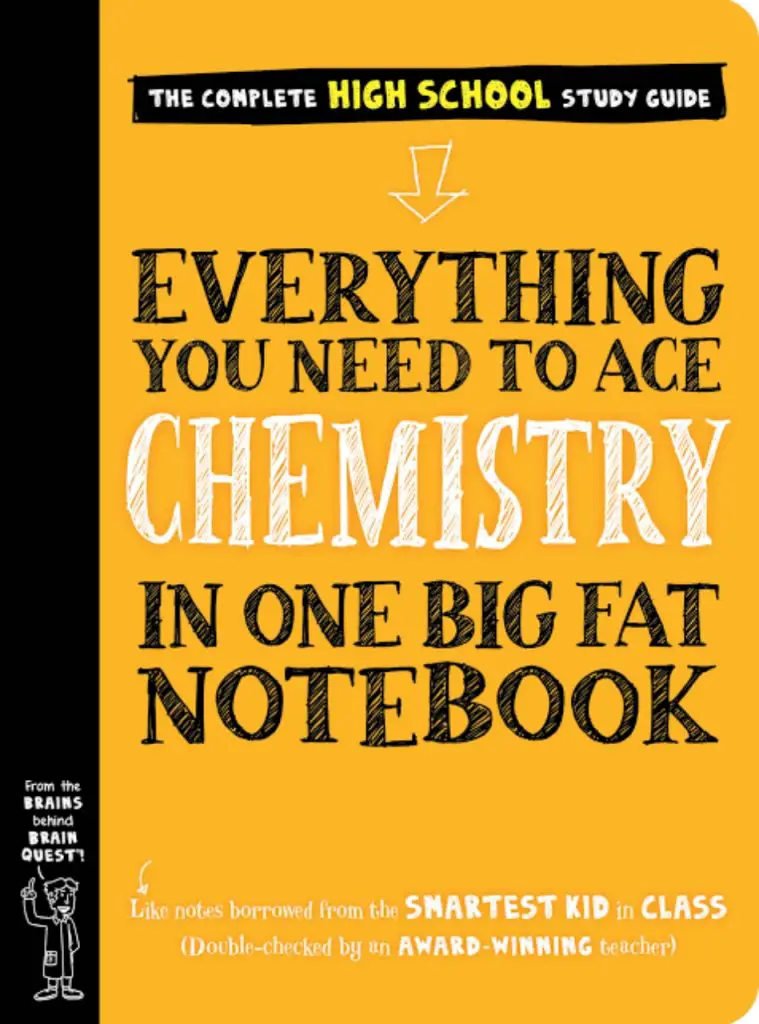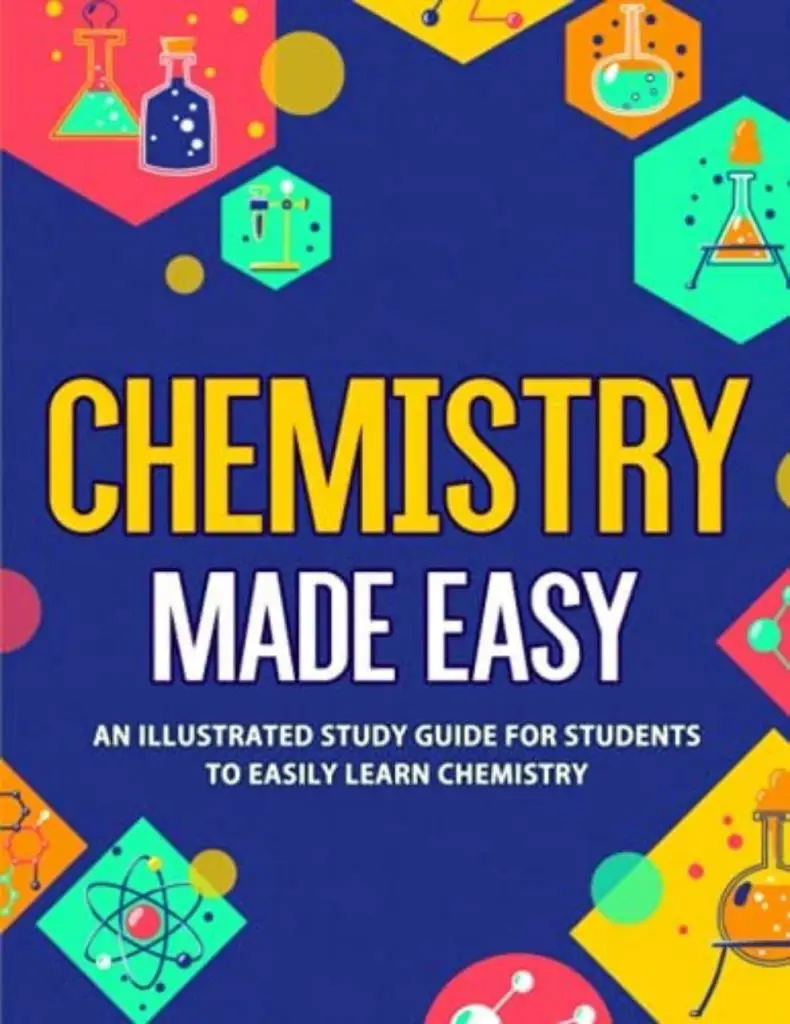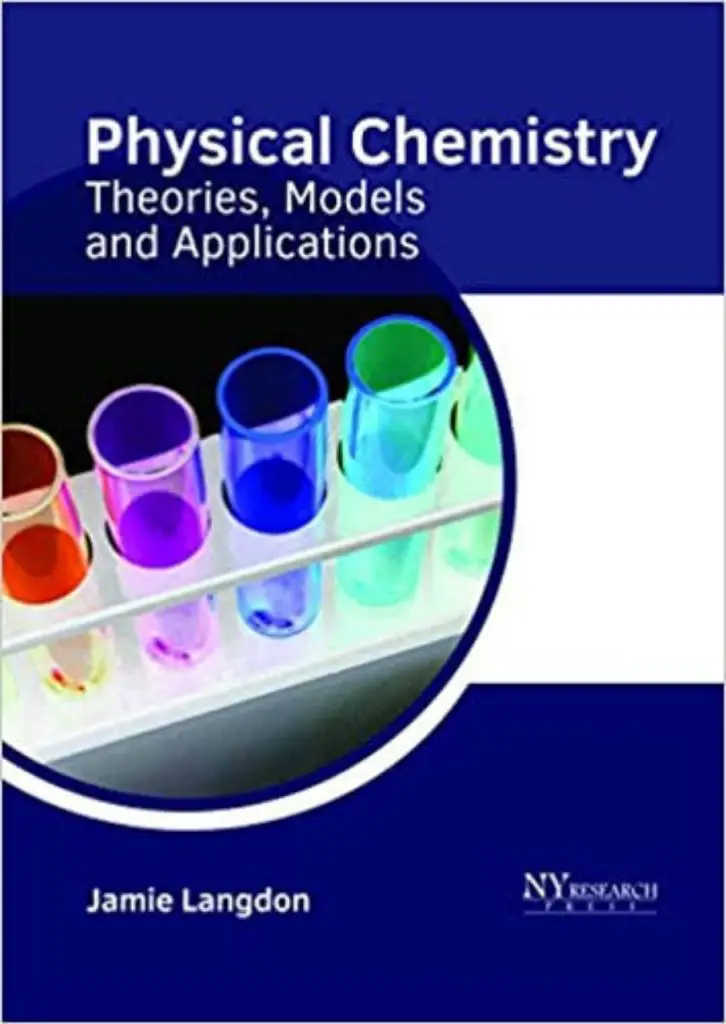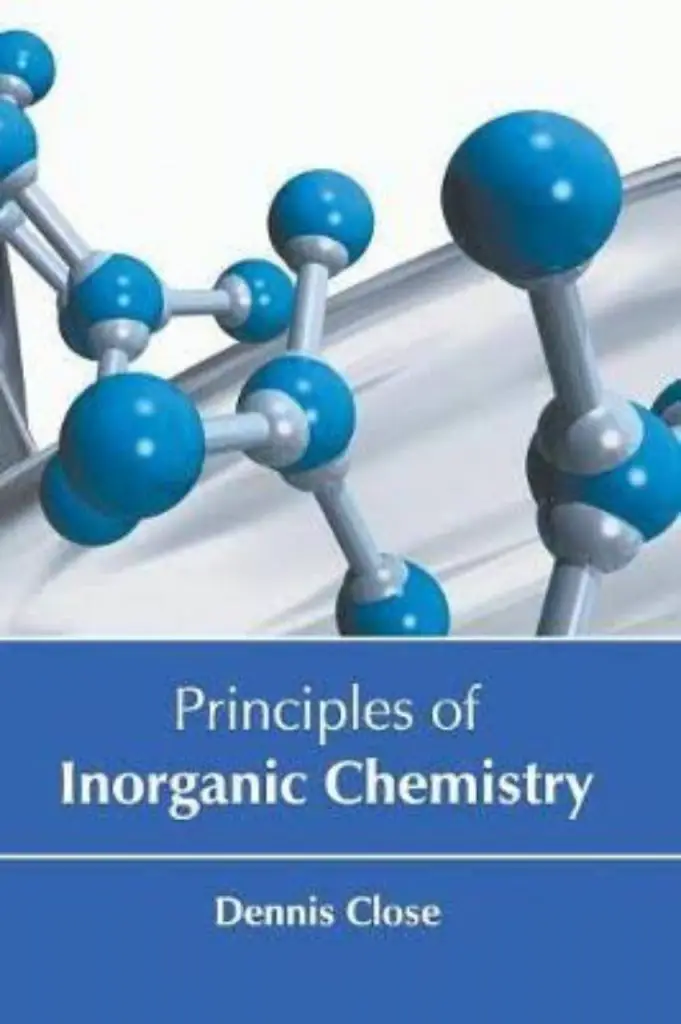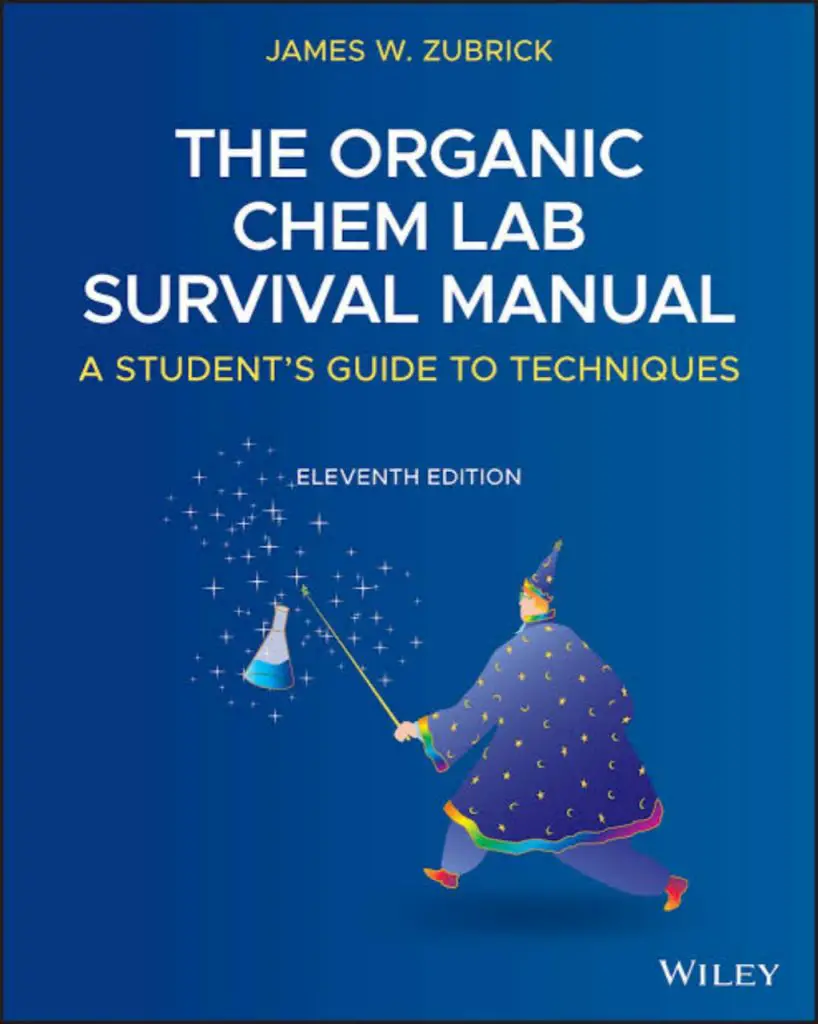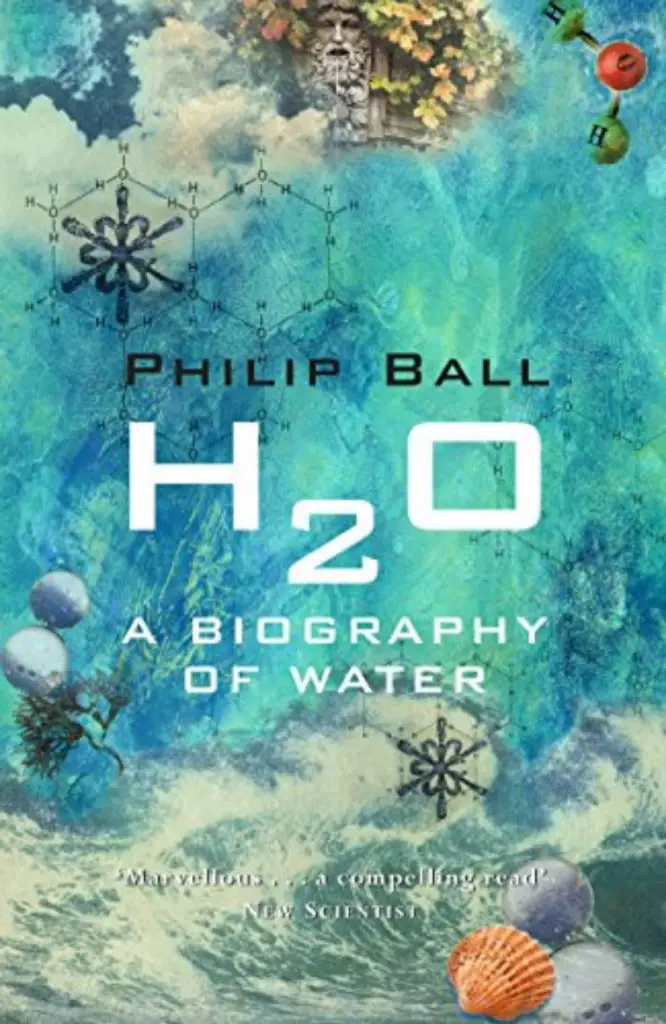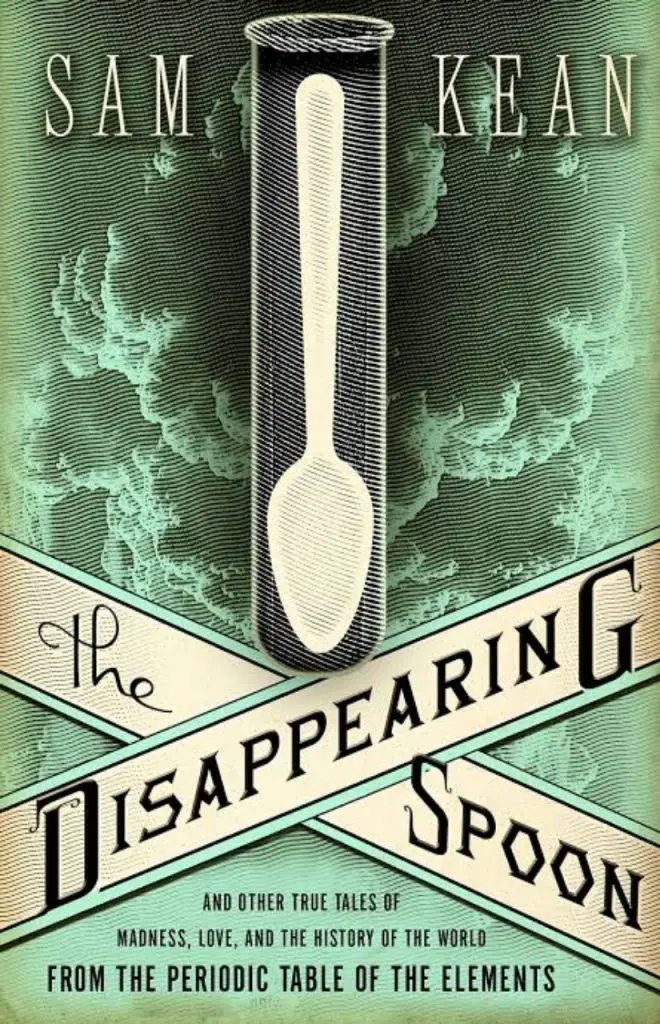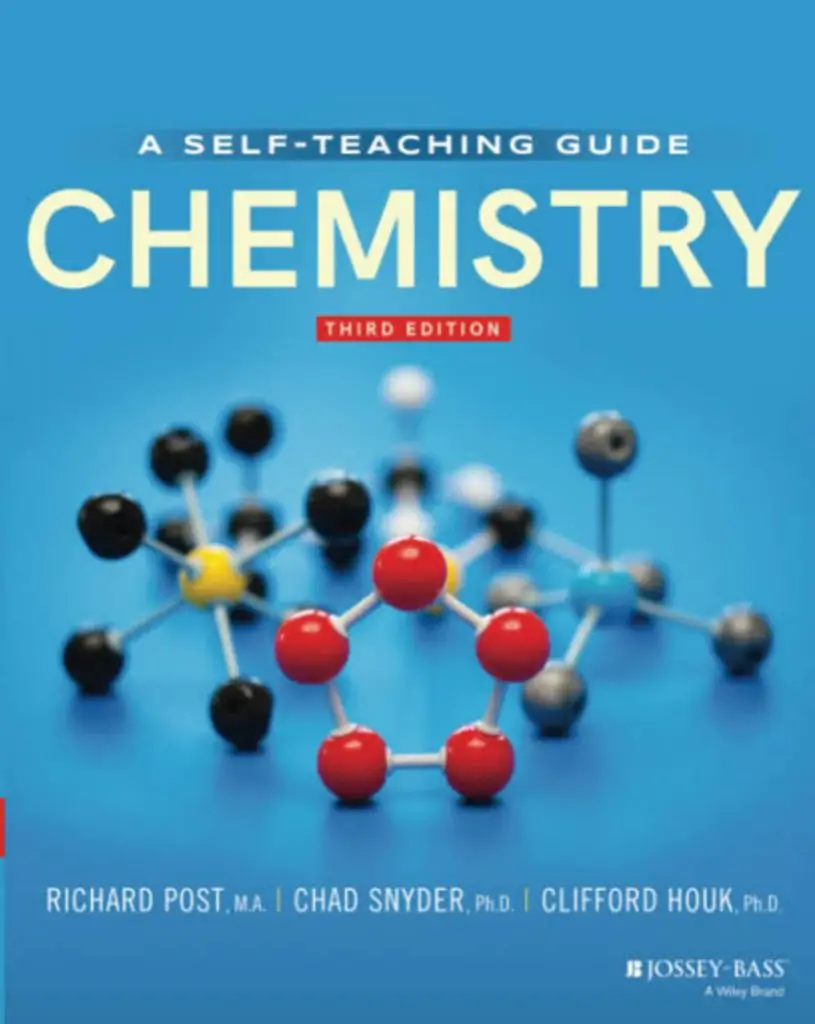Ever wondered what the must-read chemistry books are? Here is our take.
Today, our staff will assist you in making the best decision about which chemistry book is the best for your syllabus.
Here is a list of the best books for chemistry sciences students available today.
This list helps researchers who are tucked in their daily grind to develop their next breakthrough ideas.
For a layperson, this helps you become a well-read lifetime learner.
These books help students understand key principles in analytical chemistry, biological chemistry, nuclear chemistry, and more.
Let’s dive in!
Overview
- Chemistry Workbook For Dummies [Get the book]
- Chemistry: A Molecular Approach [Get the book]
- General Chemistry [Get the book]
- Introduction to Quantum Mechanics in Chemistry [Get the book]
- Introduction to Polymer Chemistry [Get the book]
- Chemistry: Atoms First [Get the book]
- Chemistry: The Molecular Nature of Matter [Get the book]
- Everything You Need to Ace Chemistry [Get the book]
- Chemistry Made Easy: An Illustrated Study Guide [Get the book]
- Physical Chemistry [Get the book]
- The Principles of Inorganic Chemistry [Get the book]
- The Organic Chemistry Chem Lab Survival Manual [Get the book]
- H2O: A Biography of Water by Philip Ball [Get the book]
- The Disappearing Spoon [Get the book]
- Chemistry – A Self-Teaching Guide [Get the book]
Table of Contents
Best Chemistry books
Chemistry Workbook For Dummies with Online Practice by Chris Hren and Peter Mikulecky
Intro-Why you should read it
Chemistry Workbook For Dummies is a self-study recommended by Bookauthority as one of the best chemistry books for high school students or college-level chemistry.
Whether you are studying for exams or looking for a comprehensive study guide, this chemistry is your passport for success in chemistry.
Chemistry Workbook For Dummies is your go-to resource for college or high school students.
Summary-What this book is about
With several practice problems, this workbook offers you an opportunity to learn the basic principles that form the basis of chemistry.
This revised edition gives you a ticket to online tests that helps you evaluate your knowledge and identify areas you need to revise.
Besides acquainting yourself with units, chemical equations, and scientific notation, this book allows you to explore the periodic table.
Key Takeaways
- The author breaks the complex jargon into simple terms for clarity.
- The people interested in chemistry will enjoy reading this book.
- The practice process gives you a better understanding of the text.
You might also like:
- 15 Must-Read Chemical Engineering Books – SCI Journal
- 15 Must-Read Biochemistry, Genetics & Molecular Biology Books
- 15 Must-Read Material Science Books
- 15 Must-Read Pharmacology, Toxicology, And Pharmaceutics Books
- 16 Must-Read Health Science Books for Self Study
Chemistry: A Molecular Approach by Nivaldo Tro
Intro-Why you should read it
Learn basic chemistry with one of the best general chemistry books available today.
Chemistry: A Molecular Approach is recommended by Chemistry Hall for chemistry students.
This book encourages students to be excellent critical thinkers and problem solvers.
Summary-What this book is about
The 5th Edition combines digital innovation with educational research insights to produce a dynamic, and user-friendly framework.
The book comes with a media package that simplifies the course setup. The Mastering chemistry that accompanies the physical edition is a game-changer in learning chemistry.
Besides encouraging students to be efficient problem solvers, the package also allows professors to effortlessly and efficiently teach chemistry.
Chemistry: A Molecular Approach visualizes chemistry through images to highlight the interrelationship between atoms, molecules that make up the world, and their formulas.
With worked examples, this book teaches students how to solve problems using Tro’s unique technique–Sort, Strategize, Solve, and Check.
Overall, Dr. Tro’s helps improve students’ conceptual knowledge.
Key Takeaways
- Develop efficient problem-solving skills.
- The author employs a systematic approach to build on the previous concepts.
You might also like:
- 15 Must-Read Material Science Books
- 15 Must-Read Pharmacology, Toxicology, And Pharmaceutics Books
- 15 Must-Read Chemical Engineering Books
- 15 Must-Read Biochemistry, Genetics & Molecular Biology Books
General Chemistry: Principles and Modern Applications by Ralph Petrucci, F.Herring, Jeffrey Madura, Carey Bissonnette
Intro-Why you should read it
This general chemistry textbook is recommended by Chemistry Hall to those studying organic chemistry, analytical chemistry, general chemistry, organic and biological chemistry.
General Chemistry: Principles and Modern Application is one of the best chemistry books for its exceptional problems, straightforward writing, and clarity of reasoning.
The book is best known for its accurate and complete presentation of the topic.
Summary-What this book is about
The 11th edition has enhanced trademark features, revised discussions, and innovations, addressing important market demands for the precise presentation of organic chemistry.
The book embraces visual learning to help students overcome obstacles of assessment and problem-solving.
Key Takeaways
- Put the ideas you learned to practice.
- The book uses visuals which are learning enhancers.
You might also like:
- 25 Best Chemistry Schools 2023
- 10 Highest Paying Chemistry Jobs to Consider 2024
- 15 Must-Read Chemical Engineering Books 2023
- Top 20+ Famous Chemistry Scientists You May Want To Know
- 15 Best Virtual Lab and Experimentation Platforms 2023
Introduction to Quantum Mechanics in Chemistry, Material Science, and Biology by Sy Blinder
Intro-Why you should read it
This book is recommended by BookAuthority for students.
This introductory book is perfect for graduate and undergraduate students in biology, material science, and chemistry.
Summary-What this book is about
This self-study explores how core concepts develop from physical sciences and chemical experiments.
The book further highlights modern techniques in this field, including NMR, lasers, and molecular spectroscopy.
Blinders also cover contemporary conceptual advances in quantum theory such as quantum computing, Bell’s theorem, Schrōdinger’s Cat, and the Einstein-Podolsky-Rosen experiment.
Key Takeaways
- Blinders’ approach to this complex subject is smart and approachable, making learning this complex topic easy.
- This topic is a core subject in the study of chemistry and physics. A good foundation of this discipline is necessary to succeed in your class.
You might also like:
- Top 20+ Famous Chemistry Scientists You May Want To Know
- 10 Highest Paying Chemistry Jobs to Consider
- American Chemical Society
- 15 Must-Read Chemical Engineering Books
- 15 Best Virtual Lab and Experimentation Platforms
Introduction to Polymer Chemistry by Charles Carraher Jr.
Intro-Why you should read it
BookAuthority recommends Introduction to Polymer as a key introductory chemistry textbook for students.
Introduction to Polymer Chemistry offers undergraduate students an in-depth overview of the concepts and uses of organic, inorganic, synthetic, and natural polymers.
Summary -What this book is about
This 4th edition covers synthetic and giant molecules, organic and inorganic polymers, ceramics, blends, caulks, fibers, plastics, coatings, composites, adhesives, coatings, and elastomers.
This book meets the American Chemical Society Committee on Professional Training (ACS CPT) course requirement by providing basic undergraduate courses.
Key Takeaways
- You should be knowledgeable about polymer chemistry as it is one of the major areas you’ll need to ace your chemistry exams.
- You should be hungry for new ideas. Scientists are always thirsty for more knowledge.
You might also like:
- Royal Society of Chemistry
- 15 Best Virtual Lab and Experimentation Platforms
- 10 Highest Paying Chemistry Jobs to Consider
- 15 Must-Read Chemical Engineering Books
- Top 20+ Famous Chemistry Scientists You May Want To Know
Chemistry: Atoms First by Julia Burdge and Jason Overby
Intro-Why you should read it
Recommended by Bookauthority as one of the best chemistry textbooks you go to when you want to learn chemistry.
Chemistry: Atoms First provides a systematic and logical introduction to chemistry students.
Summary-What this book is about
This book begins with the atomic structure–an essential building block of matter.
Once you’ve understood both electrons and atoms, it moves on to the formation of compounds. Here the book also discusses the properties of these compounds.
This introductory course forms the basis for complex topics such as thermodynamics, kinetics, stoichiometry, and equilibrium.
Key Takeaways
- Building on the ideas you already have is the perfect strategy for understanding complex topics.
- The book acts as the ladder that takes you to complex chemistry concepts. It is a beginner-friendly text.
You might also like:
- 10 Highest Paying Chemical Engineering Jobs To Consider
- 15 Must-Read Chemical Engineering Books
- 15 Best Virtual Lab And Experimentation Platforms
- Top 20+ Famous Chemistry Scientists You May Want To Know
- 10 Highest Paying Chemistry Jobs To Consider
Chemistry: The Molecular Nature of Matter by Neil Jespersen, Alison Hyslop, and James Brady
Intro-Why you should read it
Chemistry is recommended by BookAuthority for college and high school chemistry students who want to learn the introductory chemistry essentials.
Jespersen presents readers with a straightforward, succinct, and easy to grasp chemistry book.
Summary-What this book is about
The best chemistry textbook, Chemistry by Jespersen offers you the skills you need to study Chemistry-chemical bonding, chemical engineering, molecular, or molecular geometry.
This book promotes competency and success by giving you the chance to understand concepts while solving chemistry problems.
Key Takeaways
- You should have strong observation skills. These abilities are crucial in everyday life.
- You should be logical in your decision-making.
- You should be curious about new ideas.
Everything You Need to Ace Chemistry in One Big Fat Notebook by Jennifer Swanson
Intro-Why you should read it
Are you struggling with Chemistry? This Notebook is the best general chemistry textbook you need to pass your high school chemistry exams.
Recommended by Campus Career Club and BookAuthority.
Summary-What this book is about
The author presents these complex concepts using student-friendly explanations that you can easily understand.
This book includes mnemonic devices, diagrams, definitions, quizzes, and educational doodles to help you score better grades.
The book covers mixtures, compounds, elements, atoms, the periodic table, chemistry bonding, quantum theory, the mole, Gas laws, Titrations, PH scale, and solubility.
Key Takeaways
- You should be objective in your study. Don’t intentionally leave out an idea you don’t like.
- Seek details. A detail-oriented chemistry student aces chemistry exams.
- Chemistry-the central science is not only important for passing your exams. Understand the principles as they’ll be crucial as you rise to the top of your career.
Chemistry Made Easy: An Illustrated Study Guide For Students To Easily Learn Chemistry by NEDU
Intro-Why you should read it
Chemistry Made Easy is one of the best chemistry books for college-level and high school chemistry as per Campus Career Club and BookAuthority.
This text is the first book that truly makes chemistry simple.
Summary-What this book is about
The book comes with relevant examples and more than 300 illustrations to assist you in visualizing what is required to learn chemistry.
Chemistry Made Easy is undoubtedly the book to read to upgrade yourself from a newbie.
The book covers matter and its building blocks, including subatomic particles, atoms, and molecular structure.
Key Takeaways
- Ensure you have strong analytical skills to benefit from this class.
- The book’s simple approach is essential to lower-level chemistry students.
Physical Chemistry: Theories, Models, and Applications by Jamie Langdon
Intro-Why you should read it
Recommended by BookAuthority as one of the best chemistry books for students who want to learn the central science of chemistry outside a formal class.
This text is the best chemistry textbook on particulate phenomena, atoms, and sub atoms to explain motion, force, and energy concepts.
Summary-What this book is about
This book boasts an in-depth coverage of new techniques essential in understanding surface chemistry, intermolecular forces, electrochemical cells, and colligative properties.
Key Takeaways
- Ensure you can ask questions. Skepticism is a strong skill in the study of chemistry.
- You should be creative in your approach to chemistry challenges.
The Principles of Inorganic Chemistry by Dennis Close
Intro-Why you should read it
BookAuthority recommends this book for high school and college chemistry students.
This book clarifies the ideas and creative models in chemistry.
Summary-What this book is about
This self-study introduces this complex subject in the simplest and the most understandable terms possible.
Dennis Close’s book provides in-depth ideas and essential concepts, making this textbook an invaluable resource for people interested in the subject.
Key Takeaways
- Inorganic chemistry is a core disciple in the chemistry career. You should be familiar with this topic to ace your exams.
- Be open to more ideas than you already have.
- Chemistry, the central science, is important in other fields such as chemical engineering.
The Organic Chemistry Chem Lab Survival Manual: A Student’s Guide to Techniques by James Zubrick
Intro-Why you should read it
This chemistry textbook is one of the best books on introduction to general organic chemistry. The book is recommended by BookAuthourity for sophomore or junior level students studying chemistry.
Summary-What this book is about
The Organic Chemistry Chem Lab Survival Manual is a comprehensive guide to the organic chemistry laboratory’s essential techniques and safety practices in the organic chemistry laboratory.
This self-study acquaints students with lab apparatus, chemical reactions, instrumentation, and the latest techniques.
Key Takeaways
- Practicals are the cornerstone to a successful career. You should be able to understand everything that constitutes a lab, from apparatus to safety rules.
- Ask questions. Challenge yourself or other people’s opinions. This method is a great tool for coming up with creative ideas.
- Organic chemistry- the central science dealing with compounds’ molecular structure- is essential in our everyday lives. The concepts are useful for high school students and one-semester courses in college.
H2O: A Biography of Water by Philip Ball
Intro-Why you should read it
Five Books recommend this H2O as the best chemistry textbook for students who want to study chemistry essential concepts in this field.
H20 explores the birth of oxygen and hydrogen, which are the constituents of water that we consume in our everyday life. This journey takes readers through the Big Bang to the formation of ancient oceans.
Summary-What this book is about
Philip Ball’s gloriously eccentric book takes readers through environmental science, folklore, physics, ecology, and biology to provide a new viewpoint on life. Readers will also get a fascinating perspective of the substances that support life.
Key Takeaways
- Be ready to learn everything about life from different perspectives.
- Water is a fundamental component of our lives.
- To have a successful career, you should be conversant with molecular structures, chemical reactions, and other important chemistry concepts to have a successful career.
The Disappearing Spoon: And Other True Tales of Madness, Love, and the History of the World from the Periodic Table of the Elements by Sam Kean
Intro-Why you should read it
The Disappearing Spoon is recommended by Five Books as the best general chemistry textbook for students looking to learn the basics of this field.
The central focus of The Disappearing Spoon is the periodic table. Sam Kean uses anecdotes to explain how certain chemical elements positively or negatively influenced their discoveries.
Summary-What this book is about
This chemistry textbook/non-fiction takes readers through stories of prominent people such as chemist and physicist Marie Curie, who discovered radium, Mark Twain, who included a radium-made devil in his book “Sold to Satan” and physicist Maria Goeppert-Mayer.
Key Takeaways
- As a scientist, you are a problem-solver. You should be creative in your quest for solutions to problems.
- Understand the periodic table as a first step to becoming a brilliant scientist.
- You don’t need any prior knowledge of general organic and biological chemistry to understand this book.
Chemistry: Concepts and Problems, A Self-Teaching Guide by Richard Post, Chad Snyder, and Clifford Houk
Intro-Why you should read it
Chemistry: Concepts and Problems, A Self-Teaching Guide is recommended by the Campus Career Club.
This revised edition features updates to help you succeed in your AP chemistry exam.
Summary-What this book is about
This self-study enhances your retention and learning speed by employing an interactive style that includes practice questions and problems. The self-tests included in this text will help you keep track of your progress.
Chemistry: Concepts and Problems, A Self-Teaching Guide allows you to study at your speed and doesn’t need any prerequisite to understand.
Key Takeaways
- You should test your knowledge of the text by questioning yourself or solving practice exercises.
- You should be a critical thinker as scientists are naturally problem solvers.
- Be on the lookout for new techniques in chemistry.
Conclusion
Whether you are a student or an instructor, finding the best chemistry book recommended by chemistry instructors remains a difficult task.
We seek to help you in planning for your reading list and sort the major formatting issues you face in your chemistry class. The advanced placement of these books on your list is a good move.
We hope this article was helpful.
Reference
[1] https://chemistryhall.com/best-chemistry-books-for-self-study/
[2] https://fivebooks.com/best-books/chemistry-michelle-francl/
[3] https://www.campuscareerclub.com/best-chemistry-books-for-beginners/


